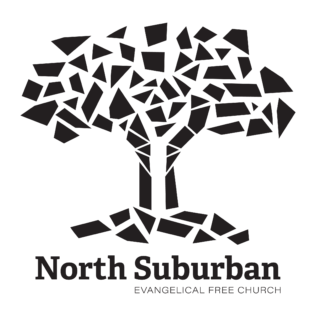Bonus Content from September 13th and 20th
Questions Answered
Time to respond to a few questions that have been sent in the last couple weeks!
1) Where can I get an Ephesians Study Guide?
Here is the series overview we sent on 9/7 that includes a link to Ephesians study journals. Life Group leaders have also been asked to consider using this, this, or this.
2) The age-old question between election and free will: I know God’s plan from the beginning is election but again we are told to share the good news. Is it still our blessing to see children and adults come to the Lord because we don’t know who God has saved?
The classic book on this question is Evangelism and the Sovereignty of God by J.I. Packer. There are two main sides to the debate, two ends of the spectrum where people fall. On both sides, people have strong opinions about this, and on both sides, people have very misinformed understandings of the other side (note: our denomination does not take a position on this).
One extreme is that God chooses who gets saved; we can’t do anything about it, and we’re all robots. The other extreme is that God doesn’t choose who gets saved but rather we have totally free will to choose whether or not we are going to be saved.
Things I (Tim) believe we must affirm from scripture:
- God freely chooses some people for His purposes (Rom. 9:10-13; Ex. 33:19).
- God freely chooses some people to be saved (Acts 13:48; Rom. 8:29-30; Eph. 1:3-6; Rev. 13:7-8)
- It seems that God may freely choose some people not to be saved (Jude 4-7; Prov. 16:4; Rom. 9:10-24)
- There is a sense in which God wants everyone to be saved (1 Tim. 2:1-4; 2 Pet. 3:9)
Therefore, the following statements must be incorrect:
- “We are robots, puppets on God’s strings with no power to make meaningful choices” (see Mt. 11:28; Rev. 22:17).
- “We can choose God even without God supernaturally enabling us to choose Him” (see Jn. 6:44).
- “It’s all the same to God whether He sends someone to heaven or to hell” (see Ezek. 18:23).
- “We can know who is predestined for salvation and who isn’t” (see 1 Thess. 1:4-5).
And I personally have a growing conviction about the truth of the following statements:
- God’s predestining seems like it’s more than just “knowing in advance who is going to freely choose Him.” See Rom. 8:29-30.
- It’s unclear how someone who doesn’t believe in predestination gets around the implication that they actually played a part in saving themselves. See 1 Cor. 2:14.
- On closer look, the primary “choice” we have is between false gods. See Josh. 24:14-15.
- Our free will isn’t totally free. See Jn. 1:12-13.
I’ve laid out here a position called “compatibilism” in which God’s sovereignty in election coexists alongside, and doesn’t negate, human responsibility. This understanding requires that we understand “free will” not as “power of contrary choice” but rather “though our actions are causally determined, we are truly free because our wills are not constrained by God.”
To me, this is an impetus for evangelism. The next person I share the gospel with may indeed be chosen by God, and the gospel I share may take root as a result!
3) How do we approach others (family or neighbors) who don’t feel that they are “dead,” that feel life is fine and good just the way they are?
This question is extremely important on the North Shore. We live in an area in which people don’t readily put their needs on display!
I don’t believe there’s any meaningful way to accept the gospel without first recognizing one’s need. So for me, I won’t even spend much effort sharing the good news with someone until I’ve helped them understand the bad news. To shortchange that step is to risk unintentionally communicating that Jesus wants to be the “cherry on top” of an otherwise swell life.
The good news is that even our family and neighbors who don’t let on that they have any needs will eventually feel need. They may not show it, but they feel it – one of their children will go off the rails, or they’ll be laid off, or their spouse will leave, or someone in the family will die, etc. We need to be “prayed up” so that we are ready for that moment – to perceive a need, to bring comfort, and to gently step in with the gospel.
But while crises might be the most effective moments to minister to someone like this, we don’t just have to wait passively for crises. We can ask thoughtful questions! “How is your marriage? How are your kids? How is business? How are your friendships? What was the most joyful part of this past year, and what was the most painful part?” etc. And these questions are even better received if they’re accompanied by vulnerable sharing on our parts of where God has ministered to us recently in our own desperate need. The more we’re open with our mess, the more our buttoned-up loved ones will be willing to be open with their mess.
4) Why do we say a creed that includes “one holy, catholic church” if we aren’t Roman Catholic?
This phrase is part of the Nicene Creed, affirmed by all Christians everywhere for centuries. “Catholic” here does not refer to the denomination centered in Rome; rather, it has a lowercase “c” and simply means “universal.” By preserving this language from the creed, we affirm that the body of Christ gathered at Lake Cook Rd. and Waukegan Rd. in Deerfield is one small part of a larger, universal Church that spans the whole globe and dates back centuries.

